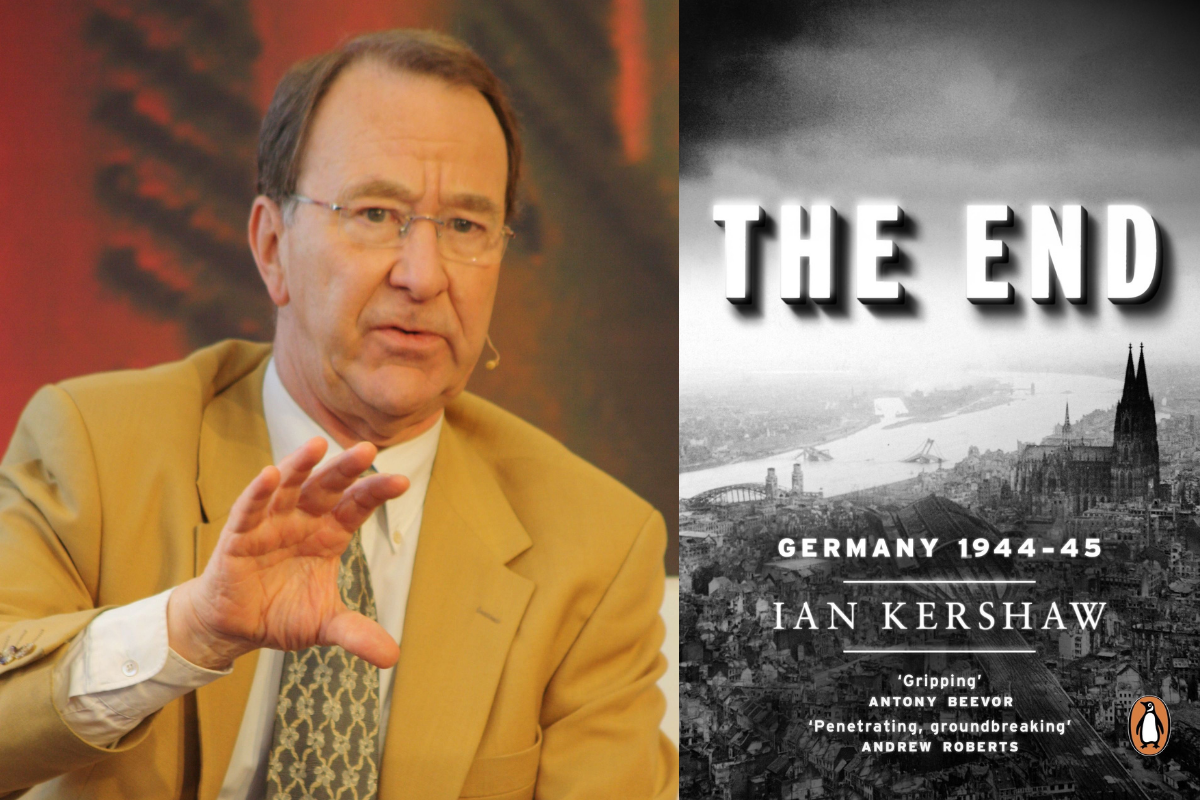
There have been many books written about Nazi Germany, Hitler’s so-called Third Reich that was supposed to last for a thousand years. Most notable of these of course is the famous The Rise and Fall of the Third Reich by William Shirer. So why does one need yet another book on what was one of the most disturbing chapters in human history? Well, simply because we STILL do not seem to know what really happened. And also because we need to be reminded again and again of those events, lest we repeat them – those who forget the past are after all, condemned to repeat it, as George Santayana so famously said.
When it comes to documenting the last days of Hitler’s doomed Reich, perhaps no book does it as well as Ian Kershaw’s The End: Germany, 1944-45. Kershaw is one of the leading experts on Nazi Germany and many consider his massive, two volume biography of Adolf Hitler to be the best of the books written on Der Fuhrer. This time he turns his attention to the last year of the Reich, starting from July 1944 to mid-1945. And wonders why unlike at the end of the First World War, the Germans did not surrender earlier and kept fighting to the very end, exposing the civilian population of the nation to untold suffering and abuse?
The point is a very valid one. After all, in most wars, there comes a stage when one of the parties realises that it is doomed to defeat and tries to negotiate a conclusion to avoid complete and total destruction. By July 1944, the writing seemed to be on the wall for Hitler’s Germany. The Allied forces had landed in Normandy and with the Russians advancing from the east, Germany was caught between two forces and was losing ground to both. And yet, the Germans fought on. They literally ended up fighting in the streets of Berlin until the very end. Some would call it brave but the fact is that the extension of the war meant far more destruction to Germany and thousands of civilian casualties than would have happened if the Reich had laid down arms earlier. The End looks at why Germany went ahead on this utterly suicidal path, fighting a war it could not win, losing people and property.
Part of the answer is given in the very first sentence of the book, attributed to the person many considered closest to Hitler, Joseph Goebbels, “It takes a bomb under his arse to make Hitler see reason.” Goebbels is believed to have made the remark In July 1945, when it became clear that the Allies had consolidated their forces after landing in Normandy. But that is only part of the answer. Kershaw’s detailing of the horrific scale of Germany’s defeat makes for disturbing reading, as you see leaders in war rooms wildly instructing troops to beat overwhelming odds. As always, the propaganda machine played a huge part in this, terrifying the German soldiers and the public of what might happen if the Soviet troops occupied Germany, with the widespread rape and killings in the German town of “Nemmersdorf” being used as an example. What is surprising is that even when defeat seemed inevitable, the Germans kept trying to negotiate with the American and British forces. An earlier surrender could have saved thousands of lives, but Hitler was stubborn till the end, and thanks to a brutal system that literally terrified his own people, not many dared disobey.
The End is a tragic story of the fall of a nation, mainly because those who suffered the most were the ones who were not really involved in the war. Germany paid the penalty for giving power to Hitler and it was a heavy price, because as the book reveals, Hitler and his followers were not too concerned about what happened to the people on the ground. The book is not exactly compelling unlike John Toland’s The Last 100 Days which told the story from a more human angle. Indeed, some might even find Kershaw’s narration a little dry in comparison (there are no attempts to recreate conversations or dramatic revelations), but there is no doubting the level of detail and fact he brings to his work. This is factual history at its best and while those seeking theatre, drama and excitement might be disappointing, the book is a treasure trove of information. So much information, indeed, that the notes and index appended to the end of the book, run well over a hundred and fifty pages.
This is not a thrilling story of the Second World War. And it does not attempt to be one either. The End is a narration of the fall of a nation that elected and empowered a maniac. And paid a heavy price for it. A price that could have – perhaps should have – been lower. Yes, we all know what happened. Ian Kershaw just makes sure that we do not forget it. Which is why this book is a must-read for anyone interested in Hitler or the Second World War.
The End: Germany, 1944-45 by Ian Kershaw is available on Amazon
